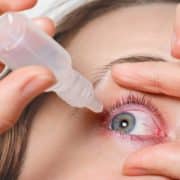The Different Types of Dry Eye Reviewed
Did you know there are different kinds of dry eye? Which one do you have? Your optometrist in Brunswick, GA, can perform a few simple tests and let you know. But until then, here are the different types of dry eye.
The Different Types of Dry Eye Reviewed
Here is what you need to know about the different types of dry eye in Brunswick, GA.
- Aqueous Deficient Dry Eye – This is when your eyes need more tears than your eyes are producing.
- Evaporative Dry Eye – This is when the tears in your eyes evaporate too quickly.
- Mixed Dry Eye – This is when you have both aqueous deficient and evaporative dry eye. So, your eyes don’t make enough tears, and your tear film is also unstable.
Your eye doctor will review your medical history, give you an eye exam, and then perform a series of tests to reveal if you have dry eye. And if you don’t, your doctor will be able to diagnose what it is you do have and treat it.
The Symptoms of Dry Eye
If you are experiencing dry, itchy eyes that burn, sting, or are sensitive to light, you might have dry eye. If you have mucus coming out of your eyes or have watery eyes with an abundance of tears that run down your face, you might have dry eye.
Risk Factors for Getting Dry Eye Disease
There are several risk factors that could result in you getting dry eye. There are environmental and lifestyle factors, taking certain medications, eye surgery, or even some neurological conditions or autoimmune conditions that increase your risk of getting dry eye.




